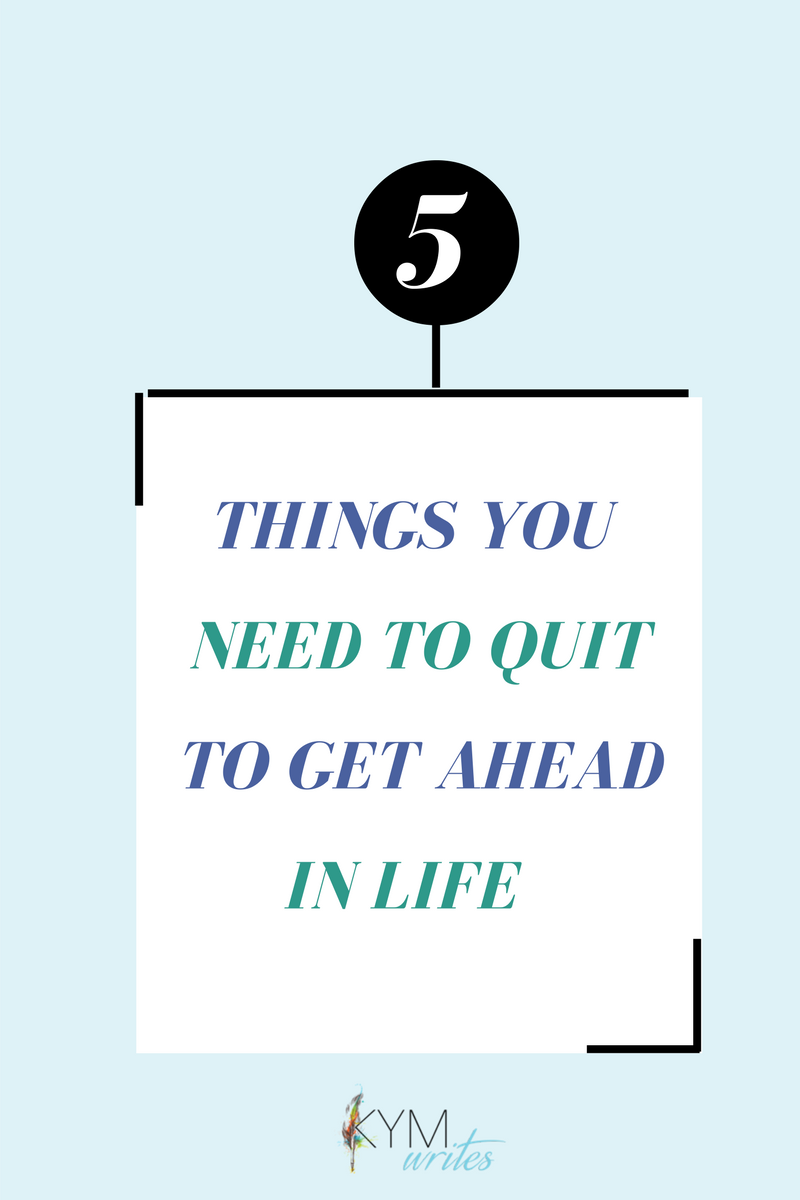How to Ditch Your New Year's Resolutions and Keep Your Momentum
Why you don’t need resolutions to reach your goals
Whether your 2017 deserves a high five for its kindness or a major eye roll for bringing the drama, you’ve survived the highs and lows and made it to the new year. For many, January 1st marks a new beginning. A chance to start fresh and create New Year’s resolutions to help them create change and obtain successful outcomes, whether it’s working out more or starting a new career. It’s an exciting time as we explore new opportunities and habits to make our lives better.
However, statistics show that nearly 50 percent of Americans make New Year’s resolutions, yet half of them give up within six months (and less than 10 percent feel like they succeeded in achieving their goals).
I’ve definitely been in the majority before, sometimes throwing in the towel well before the six-month mark. My resolutions to write a book, read more, learn more, pray more, and exercise more all sounded good in theory but I had no plan in place, which left me coming up short Dec. 31st every year.
One day I realized my resolutions needed to become ongoing goals and not just declarations I announced at the beginning of each year. I don’t knock people who make New Year’s resolutions, and I highly admire the nine percent who see them all the way through. But I realized I was just playing myself by treating my resolutions as a grocery item to check off on my shopping list. The truth is I desired the resolutions but I didn’t want to put in the work to make them happen. I expected game-changing results at the onset of my resolutions, but my excitement dwindled as time passed, and my ambition disappeared shortly after.
Do you find yourself disappointed that your New Year's resolutions never pan out?
Maybe the new year stirs up anxiety or you feel guilty because of unfinished business in the previous year and failed resolutions. What if we replace our resolutions with intentional goals and lifestyle changes that we can maintain for the long-haul? December 31st doesn’t need to be the end-all-be-all or expiration date of our dreams. Silence the voice that says: “You didn’t write your book by the end of the year? You’ve failed as a writer. Sorry, try again!”
Instead you can tell yourself: “I plan to write three books within the next five years, so even though I have a deadline, my writing is ongoing.
If you’re moving into a new season or find yourself in a transitional period, you’ll need more than a few wishes to keep your momentum in 2018. You’ll need to take action and create a strategy that you can execute throughout this year and beyond.
Accountability
You can have accountability partners for different areas of your life depending on your goals. There’s no limit as long as you choose people who genuinely want to help you succeed in life. As I venture into new creative projects this year, my writer friend and I have committed to holding each other accountable to our writing goals. Even though she’s in another state, we will make it happen, thanks to technology. I also plan to meet up with my local writer friends. Whether it’s my accountability group for healthy living or writing, I want to create a supportive community that continues long after Dec. 31st.
Don’t have any local accountability partners? Don’t let distance deter you. Use technology to your advantage. Join a Facebook group or a virtual community and engage with others who share your same goals.
Break it down
A major goal can become a daunting task if you don’t create a roadmap to get there. Writing a book is a huge undertaking and time commitment, and it quickly became a repeated failed resolution every year because I lacked a strategy. I realized I needed to change my mindset, which included breaking the project down into smaller steps and creating a plan that wasn't solely built on fulfilling a resolution.
Let’s say you want to write and publish a book by January 1st, 2019. Start off with quarterly goals and then break them down into monthly and then weekly goals.
For example:
Monthly Goals: If you write six chapters for the first two quarters, you’ll write an estimated two chapters per month.
Weekly: Determine how many chapters you want to write per week. (One chapter a week? Two?)
Daily: How many words will you write per day to reach your weekly goal?
I love breaking big goals down into bite-sized chunks. Even if your goal is something entirely different, you can still use the quarterly method to create a strategy to keep moving forward.
If your goal is to write a book or start a new creative project, sign up to get a goal-setting worksheet below!
Keep learning
You can’t stay stagnant when you’re constantly learning new things. Honing our skills and craft is a lifelong process that helps us to grow in the areas we are gifted in. Through training and educational opportunities, we can also awaken new interests and discover skills that align with our purpose. Commit to reading more or enhance your knowledge through classes (they don’t have to be equivalent to the cost of tuition). Attend a seminar or conference that pertains to your work, join an association or take an affordable course on Skillscourse, Lynda, Udemy or Masterclass. Investing in your personal development is essential to grow and advance in your career and business.
Document your lessons
Track your progress throughout the year by journaling your wins, losses, successes, failures, victories and disappointments. This will help you measure your growth and identify areas you could improve in. Were there any recurring themes or issues? What patterns developed? What fears have you conquered or still hold on to? Documenting your journey as it unfolds throughout the year provides clarity and focus as you move toward accomplishing your goals. Taking notes of lessons learned helps you connect the dots and gain a new perspective.
Be well
It’s hard to keep the momentum if you’re not taking care of yourself. Developing and maintaining a self-care ritual for your mind, body and soul should be a priority year after year, and that plan will vary for each individual. For some, it may include drinking more water and going to yoga while someone else will incorporate more sleep, going to church or adding meditation to their morning routine. Achieving and sustaining your goals will take mental and physical energy, as well as spiritual stamina. Create a self-care plan that you can maintain right now and in the days to come.
As we settle into our second week in 2018, think about the goals you want to accomplish and what steps you can take today to get there, no matter how small. What habits and lifestyle changes can you make to help you keep your momentum? Remember, a resolution without determination or a plan is just a wish. But a goal with a strategy and dedication becomes an accomplishment.
Keep moving forward.
Do you have a goal to improve your writing or pursue your writing career seriously? Let me know what you’re working on!












